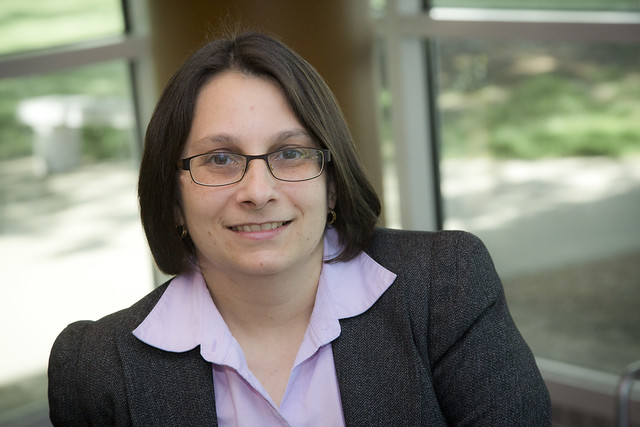Barton Juvenile Defender Clinic et al. file suit on behalf of jailed students

Director of Barton Juvenile Defender Clinic
Every child with a disability is entitled by federal law to a free, appropriate public education, including specially designed instruction necessary to ensure their academic success. But according to a federal class-action law suit filed today, students held at the DeKalb County Jail are denied the opportunity to receive the education they need to prepare for adult life.
The lawsuit was filed by Children’s Rights, Bondurant Mixson & Elmore, LLP and the Barton Juvenile Defender Clinic at Emory University School of Law on behalf of incarcerated youth who have a right to special education services and accommodations. The DeKalb County School District, the Georgia Department of Education, and the DeKalb County Sheriffs’ Office, along with associated state officials are named as defendants.
The DeKalb County Jail is one of the largest detention facilities in the nation. The jail processes approximately 33,000 people annually, including youth as young as 17. Many of these youth are eligible for special education services.
“State and County officials have not put in place even the most rudimentary systems necessary to identify and evaluate youth who need special education services,” said Aaron Finch, Senior Staff Attorney with Children’s Rights. “Receiving an education while in jail has been proven to reduce recidivism and poverty rates. Yet the biggest county jail in Georgia offers no special education services. The goal of our law suit is to guarantee these kids get the education they deserve.”
“DeKalb County Jail is utterly failing young people with disabilities who already face an uphill path to a better life. We want to send a message to these children: you are worth educating; we are not giving up on you. An education is a transformative experience that you deserve – and that’s what we are fighting for,” said Randee Waldman, Director of the Barton Juvenile Defender Clinic at Emory University School of Law.
A Department of Education study found that youth held in justice facilities are less likely to receive special education services than youth not in confinement. This is despite the fact that those enrolled in justice facility educational programs were more likely to be identified as students with disabilities. The disparity is even greater for boys and for black students of both genders, who are overrepresented in justice facility educational programs. These students struggle with autism, schizophrenia, post- traumatic stress and major depressive disorder, among other conditions. Without specially designed instruction and accommodations, such as more time to take tests, stress relief breaks, and regular tutoring, they have little chance of receiving an adequate education.
In its landmark Brown v. Board of Education decision the Supreme Court recognized that it is “doubtful that any child may reasonably be expected to succeed in life if he is denied the opportunity of an education.” For youth in confinement this is especially true. Like all disadvantaged young adults who lack access to education, they are far less likely to graduate from high school, find meaningful employment, or go on to college. In Georgia, those without a high school diploma are twice as likely to live in poverty. For youth in detention who need it, the lack of access to special education greatly increases the likelihood that they will return to jail.
The law suit calls on the Court to affirm that defendants are violating federal statutes, and order them to develop a system, including policies, procedures, and adequate staffing, to ensure the delivery of special education services to eligible students.